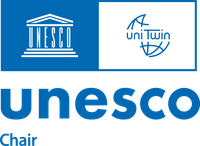The Cat Tien National Park (CTNP) is one of the last remaining lowland jungles in Vietnam, which possesses unique biodiversity including the last surviving population of the Vietnamese Javan Rhinoceros (Rhinoceros sondaicus annamiticus). People inhabiting in and around the CTNP belong to diverse ethnic groups with different histories, administrative systems, and land use strategies. One of the World Bank’s projects entitled “Forest Protection and Rural Development Project (FPRDP)” is being implemented in the buffer zone of CTNP with a dual objective of sustaining the CTNP and improving the livelihoods of local inhabitants. However, conservation and management of CTNP, a typical public or collective good, is not a trivial task. Drawing from the literature on public goods and collective action, this study explores the role of social capital on households’ conservation attitude and participation in conservation programs. More specifically, this study explores the relationships among households’ socio- demographic variables, social capital, conservation attitude, and participation in the FPRDP for those inhabiting in and around the bufferzone of the CTNP. Data from 270 households representing nine villages were collected, using a structured questionnaire and a face-to-face interview method, to achieve the study objective. A three level stratified random sampling approach was followed to account for spatial and ethnic diversity of households living around the park. Factor analysis was employed to identify eight social capital components and four conservation attitude components and the identified components were used to construct social capital and conservation attitude indices. Multivariate regression techniques were used to determine the effect of social capital and other socio-demographic variables on household attitudes toward conservation of CTNP. Logistic regression models were used to determine the effect of social capital, demographic variables, and conservation attitude on household’s participation in the FPRDP. Results suggest that education, social cohesion, familiarity, and social integration have positive and significant impacts on households perceived benefit of conservation. Households that scored high on voluntary cooperation and social integration variables tend to perceive less direct use benefits from the park. Households with higher social commitment and community support indices feel more secure about forestland ownership. Results also show that land tenure security can improve participation in conservation activities. Important implications of this study include (1) a policy or program to increase social capital in general with emphasis on efforts to enhance social networks among households in and around CTNP; and (2) government should create a land tenure regime that better encourages households to participate in conservation activities.




